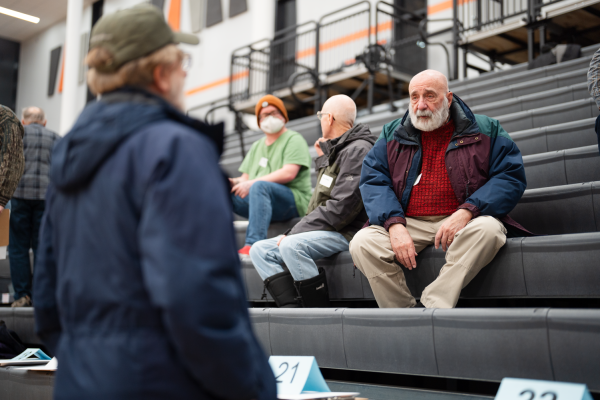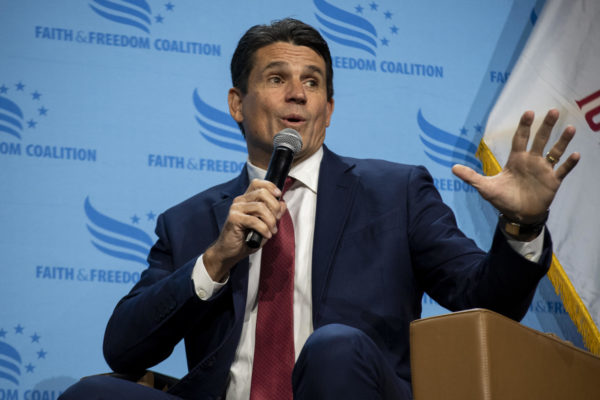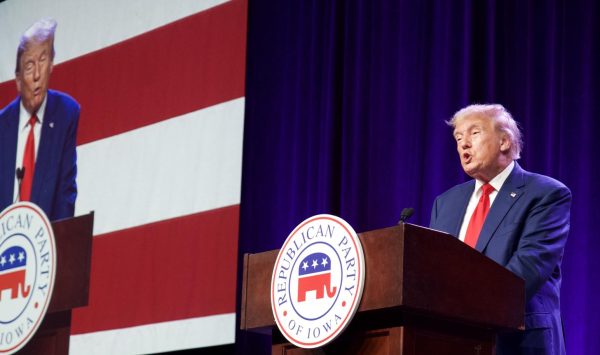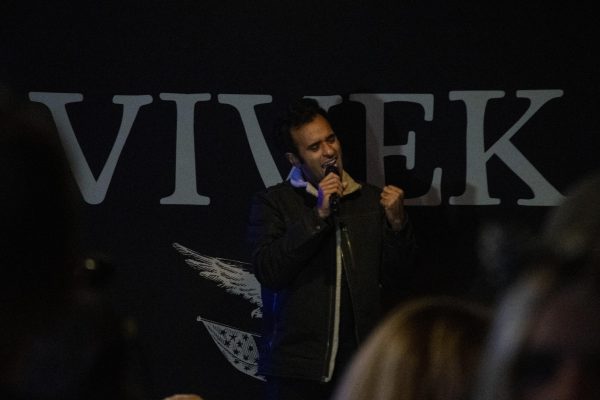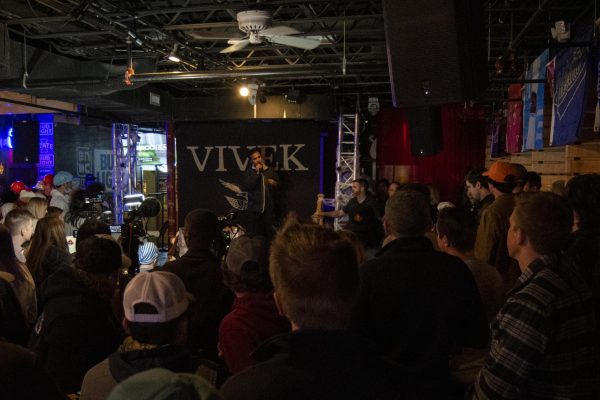Justices weigh Arizona immigration law
April 25, 2012
WASHINGTON — The Supreme Court heard arguments Wednesday on an Arizona law that seeks to crack down on illegal immigration, a thorny issue of white-hot controversy that states around the country have grappled with in recent years amid record levels of immigration to the United States.
Fed up with illegal immigrants crossing from Mexico — and what they say is the federal government’s inability to stop it — legislators in Arizona passed a tough immigration law. The federal government sued, saying that Arizona overreached.
Federal judges have blocked parts of the law that would require unauthorized immigrants to carry registration papers, let police check some people’s immigration status and arrest certain immigrants without probable cause. Judges also struck down a part of the law that would ban people who aren’t legally able to work from applying for a job — even by standing in a parking lot ready to “gesture or nod” to indicate their willingness to work.
Several other states followed Arizona’s lead by passing laws meant to deter illegal immigrants. Similar laws are under challenge in lower courts in Georgia, Alabama, Utah, Indiana and South Carolina. Arizona’s appeal is the first to reach the Supreme Court.
The Obama administration contends that enforcing immigration laws is a role for the federal government, not the states. Arizona has argued that illegal immigration creates financial hardship and raises safety concerns and that the federal government has failed to adequately deal with the problem.
The legal issue before the high court is whether states have any authority to step in to enforce immigration matters or whether that is the exclusive role of the federal government. In dry legal terms, this constitutional question is known as pre-emption.
Federal courts have blocked four key parts of the state’s Support Our Law Enforcement and Safe Neighborhoods Act, known as SB 1070. Arizona will tell the high court that illegal immigration is creating hardships that it must address through its own enforcement.
The administration plans to counter by saying immigration issues are under its exclusive authority and state “interference” would only make matters worse.
The Southwest state is the nation’s most heavily traveled corridor for illegal immigration and smuggling.
A wild card: Justice Elena Kagan will not hear this case. Before taking the bench last year, she had been involved in the administration’s initial legal opposition to the law as solicitor general. A 4-4 high court split would be likely to keep the Arizona law in legal limbo, preventing the four provisions of the law from going into effect but not settling the larger constitutional questions.
It would also shift the election-year fight over the issue to other states with current or pending crackdown laws.
The court hearing over the illegal immigration law comes at an interesting time. The Pew Hispanic Center this week released a report that found that Mexican immigration to the United States has come to a standstill.
The economic downturn in the United States and better conditions in Mexico, along with deportations and other enforcement, has led many to return to Mexico.
However, the debate continues as more than 10 million unauthorized immigrants — from Mexico and other countries — continue to live in the United States.
Even if immigration has slowed to lows not seen in decades, proponents of tough immigration laws want to beef up enforcement ahead of any future pressures.
The four Arizona provisions on hold are:
— A requirement that local police officers check a person’s immigration status while enforcing other laws if “reasonable suspicion” exists that the person is in the United States illegally.
— A provision authorizing police to arrest immigrants without warrant where “probable cause” exists that they committed any public offense making them removable from the country.
— A section making it a state crime for “unauthorized immigrants” to fail to carry registration papers and other government identification.
— A ban on those not authorized for employment in the United States to apply, solicit or perform work. That would include immigrants standing in a parking lot who “gesture or nod” their willingness to be employed.
Although the specific question before the high court relates to the law’s enforcement, the justices could use the appeal to address the broader constitutional questions.
Arizona Gov. Jan Brewer, who will attend the court arguments, said she remains confident the justices will rule for the state.
State officials believe they would be merely assisting and cooperating with federal authorities in combating illegal acts — actions they say Congress has blessed.
The administration, backed by a variety of immigrant and civil rights groups, says allowing such discretionary state authority would hurt relations between the United States and other countries, disrupt existing cooperative efforts and unfairly target legal immigrants.
In a rhetorical rematch of last month’s separate arguments over the Obama-backed health care reform law, private attorney Paul Clement will make the case for Arizona while Solicitor General Donald Verrilli will articulate the federal government’s position.
The legislation has a variety of supporters and detractors.
Republican lawmakers, outspoken Maricopa County, Arizona, Sheriff Joe Arpaio and various state governments were among those filing briefs supporting the law. The Mexican government, the Anti-Defamation League, the American Immigration Lawyers Association and the city of Tucson, Arizona, were among those supporting the Justice Department’s side.
Civil rights and minority groups, as well as some law enforcement agencies, worry the law would encourage racial profiling, drain vital and scarce law enforcement resources, hamper investigation of more serious crimes and cripple relations with immigrant communities.
In a CNN/ORC International poll last fall, 52% of those surveyed said illegal immigration was extremely or very important to their vote for president. But a similar poll in March showed only 4% saying it is the most important issue facing the United States today, while 53% said the economy is the top issue.
While a federal judge in 2010 stopped enforcement of the most controversial provisions, other parts of SB 1070 were given the go-ahead, including a ban on “sanctuary cities,” or municipalities with laws or policies that render them relatively safe for undocumented immigrants.
Judge Susan Bolton’s ruling also allowed a provision making it illegal to hire day laborers if doing so impedes traffic. Her order allowed parts of the law dealing with sanctions for employers who hire illegal immigrants to take effect.
A federal appeals court in San Francisco subsequently sided with the Justice Department, largely on the argument that federal immigration policy — as well as America’s standing in the world — would be greatly undermined if individual states adopted their own separate immigration laws. Doing so, the court concluded, essentially meant a given state would be adopting its own foreign policy, one that may be in opposition to national policy.
The outcome of the Arizona appeal could set important precedent on similar laws pending across the country.
The case is Arizona v. U.S. (11-182) and is to be the last argued before the high court this term. A ruling could come in late June, just before the justices recess for the summer.








